One of the most vivid travel memories I have is flying into London on a 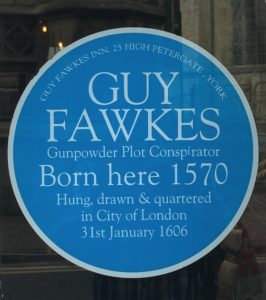 November night and as we came low over England, small towns were blasting fireworks, so there were little starbursts all over the ground. Those demonstrations, of course, were in memory of Guy Fawkes and the Gunpowder Plot. As this plaque shows, it failed and the consequences weren’t great for Guy. But the story lives on. One author has asked the question: what if the plot to blow up Parliament had succeeded? The answer is a pair of novels: “Remember, Remember,The Sixth of November,” and “1617.”
November night and as we came low over England, small towns were blasting fireworks, so there were little starbursts all over the ground. Those demonstrations, of course, were in memory of Guy Fawkes and the Gunpowder Plot. As this plaque shows, it failed and the consequences weren’t great for Guy. But the story lives on. One author has asked the question: what if the plot to blow up Parliament had succeeded? The answer is a pair of novels: “Remember, Remember,The Sixth of November,” and “1617.”
Tony Morgan has taken the famous story of November 5th and created his own world, playing my favorite writing game; “what if?” What if D-Day had failed? What if Columbus hadn’t made it back to Spain? What if my mother had married any of the three (THREE!) guys who proposed to her before she accepted my father? Actually, I try not to dwell on that one for all kinds of reasons. The point is, it’s a fascinating game.
What’s the Tony Morgan story?
 Tony Morgan lives in Yorkshire in the UK, close to the birthplace of Guy Fawkes. His books have been described as a perfect read for lovers of the works of C.J. Sansom and S. J. Parris and anyone interested in how historic events have shaped our own times. Profits from both his books in 2017 are being donated to York Teaching Hospital Charity’s dementia appeal.
Tony Morgan lives in Yorkshire in the UK, close to the birthplace of Guy Fawkes. His books have been described as a perfect read for lovers of the works of C.J. Sansom and S. J. Parris and anyone interested in how historic events have shaped our own times. Profits from both his books in 2017 are being donated to York Teaching Hospital Charity’s dementia appeal.
In a nutshell,what are the stories about?
In my first novel “Remember, Remember the 6th of November” I retell the story 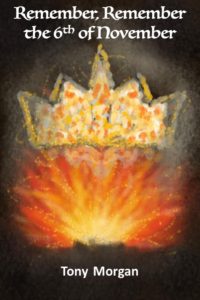 of Guy Fawkes and the Gunpowder Plot. It’s a pivotal moment in British history, celebrated annually on November 5th with bonfires and fireworks. Given few people know the details behind this, I’ve focused on the real-life events but couldn’t stop myself from including a few twists along the way.
of Guy Fawkes and the Gunpowder Plot. It’s a pivotal moment in British history, celebrated annually on November 5th with bonfires and fireworks. Given few people know the details behind this, I’ve focused on the real-life events but couldn’t stop myself from including a few twists along the way.
In my new release “1617” I’ve inserted the twists from the start. An alternate history develops, where the Gunpowder Plotters have succeeded in blowing up Parliament and killing King James I. The story centres on the early years of the reign of his daughter, Queen Elizabeth II, as she attempts to set the country on a different path towards religious tolerance. Of course, not everyone is supportive. Far from it, extremists and foreign agents wish to foil her plans. Closer to home, Elizabeth’s opponents plan to stop her ending the “plantation” of Ireland. With all this happening, can the young queen survive?
What is it about that time period or character that intrigued you and motivated you to write about it?
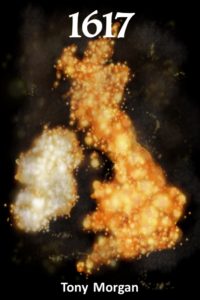 The first book is set in a world with fascinating, if alarming, parallels with modern times – terrorists on the streets of London, religious unrest, government surveillance and conflict with Europe. The history of the Gunpowder Plot is compelling, from the motivations of the Catholic conspirators, to the intrigue, betrayals, torture and so on.
The first book is set in a world with fascinating, if alarming, parallels with modern times – terrorists on the streets of London, religious unrest, government surveillance and conflict with Europe. The history of the Gunpowder Plot is compelling, from the motivations of the Catholic conspirators, to the intrigue, betrayals, torture and so on.
In both books, it’s the people of the era which fascinate me most. Every Gunpowder Plotter was a man with a family, wives, children, mothers, fathers, brothers and sisters; as were those on the opposite side of the divide. In “1617”, how could Elizabeth face a world where her father and brothers had been murdered and she was likely next in line? How would the zealots on all sides react to talk of religious tolerance? What would be the impact in Ireland, in America and beyond be from these changes to history? Attempting to begin to answer these questions was motivation enough for me. I’m hoping readers will also develop their own thoughts and threads.
Without giving away the good bits, what are your favorite scenes?
In “Remember, Remember the 6th of November” it’s a secret discussion between spymaster general Robert Cecil and one of the plotters. There’s a significant reveal so I won’t spoil it but Cecil is my favourite character in the book. He’s a man with a ruthless controlling streak but he also has humour and understanding too.
In “1617” I enjoyed the interplay between the protagonist Sir Everard Digby and his Welsh friend and real-life navy captain and explorer Thomas Button. My favourite scene though is where the deadly French spy Linda Blanchet exploits the lecherous French ambassador in London in an attempt to cover her tracks.
Now let’s get shamelessly mercenary. Where can people find you and your books?
Remember, Remember the 6th of November is available in Paperback and Kindle ebook formats –
US – https://www.amazon.com/dp/B01LICIBOK
UK – https://www.amazon.co.uk/dp/B01LICIBOK
1617 is available as a Kindle ebook –
US – https://www.amazon.com/dp/B075C3WY9P
UK – https://www.amazon.com/dp/B075C3WY9P
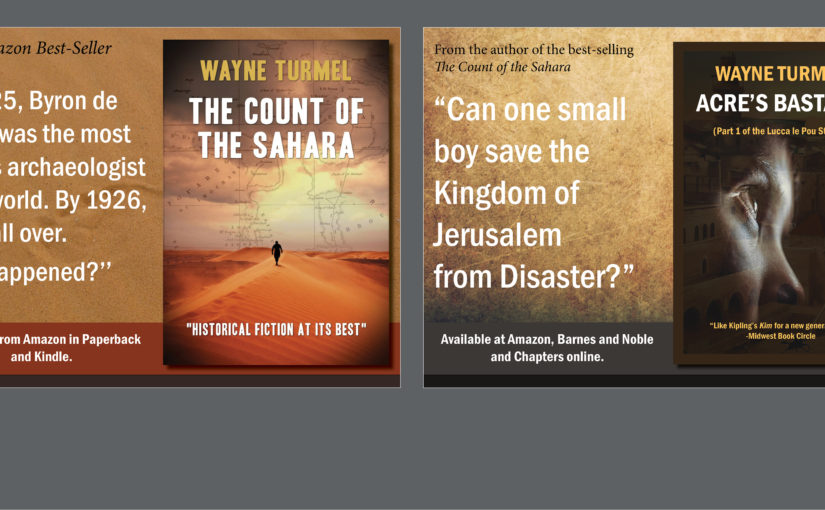
 I am a fifth-generation Colorado native – and because I was the geeky kid who kept pestering the “old people” with questions, from an early age I was filled with a wealth of strange and historical stories. I’m from Golden originally, and now live in Denver. My undergrad degree is in History and I love the more unusual facets of history. In my free time, if I’m not writing, I’m off combing the mountains for old historical relics and enjoy traveling around the world. I am a member of Lighthouse Writers, Colorado Author’s League, Historical Novel Society and History Writers of America along with Women Writing the West.
I am a fifth-generation Colorado native – and because I was the geeky kid who kept pestering the “old people” with questions, from an early age I was filled with a wealth of strange and historical stories. I’m from Golden originally, and now live in Denver. My undergrad degree is in History and I love the more unusual facets of history. In my free time, if I’m not writing, I’m off combing the mountains for old historical relics and enjoy traveling around the world. I am a member of Lighthouse Writers, Colorado Author’s League, Historical Novel Society and History Writers of America along with Women Writing the West.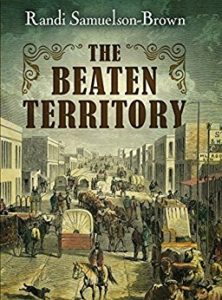

 When not spending time with his family, teaching, playing hockey, and enjoying the outdoors, he continues to research and write. A series of new releases are planned for the future.
When not spending time with his family, teaching, playing hockey, and enjoying the outdoors, he continues to research and write. A series of new releases are planned for the future.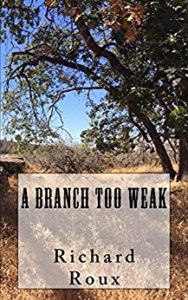 love exploring how local history is intertwined with national events. And I have always been drawn to history of the American West. So, throughout my life, I have contemplated how my little corner of the world developed over time. My family has some property in the Greenhorn Mountains of Kern County. The area witnessed its own gold rush in 1853 and 1854.
love exploring how local history is intertwined with national events. And I have always been drawn to history of the American West. So, throughout my life, I have contemplated how my little corner of the world developed over time. My family has some property in the Greenhorn Mountains of Kern County. The area witnessed its own gold rush in 1853 and 1854. I can’t think the members of NWG enough for their support, love and assistance with my writing–not to mention just getting me out of the house and out amongst humans once a week.
I can’t think the members of NWG enough for their support, love and assistance with my writing–not to mention just getting me out of the house and out amongst humans once a week.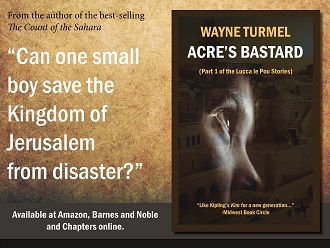
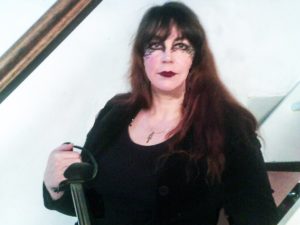 Writer, mad cake lady, re-enactor, historian.
Writer, mad cake lady, re-enactor, historian.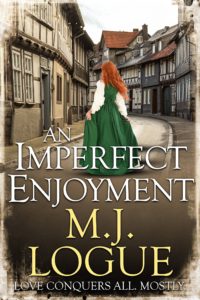

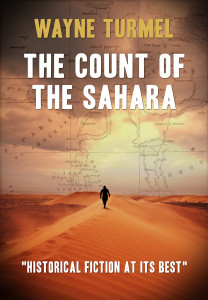
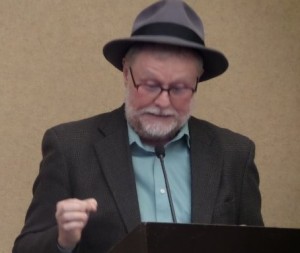
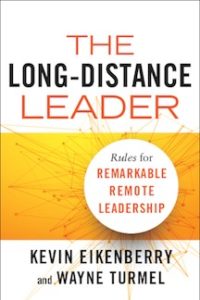 available for pre-order. It’s from Berrett-Koehler publishers, and we couldn’t be happier, both with the book and our partnership with B-K.
available for pre-order. It’s from Berrett-Koehler publishers, and we couldn’t be happier, both with the book and our partnership with B-K.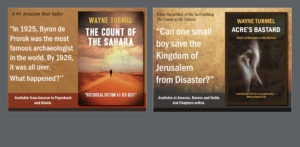
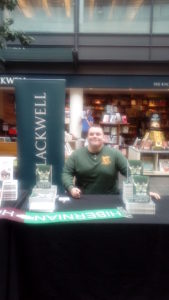 Ian Colquhoun is an author and historian from Livingston, Scotland. Since 2007 he has released 11 books, with subjects ranging from military history to football. He is a keen military historian and Hibernian FC fan. Ian’s life changed in 2002 when, at the age of 24, he was the victim of assault and arson which saw him lose both legs. No longer able to do his old warehousing job, he went to university to study history and then went on to writing. For a time he was also an amputee actor/stunt man (okay, I now feel completely useless and out of excuses for pretty much anything!), and has appeared in movies like The King’s Speech and Sunshine on Leith, as well as in TV series such as Taggart and Downton Abbey. Largely retired now for medical reasons, Ian still writes for a newspaper called The Irish Voice, mostly covering sports.
Ian Colquhoun is an author and historian from Livingston, Scotland. Since 2007 he has released 11 books, with subjects ranging from military history to football. He is a keen military historian and Hibernian FC fan. Ian’s life changed in 2002 when, at the age of 24, he was the victim of assault and arson which saw him lose both legs. No longer able to do his old warehousing job, he went to university to study history and then went on to writing. For a time he was also an amputee actor/stunt man (okay, I now feel completely useless and out of excuses for pretty much anything!), and has appeared in movies like The King’s Speech and Sunshine on Leith, as well as in TV series such as Taggart and Downton Abbey. Largely retired now for medical reasons, Ian still writes for a newspaper called The Irish Voice, mostly covering sports.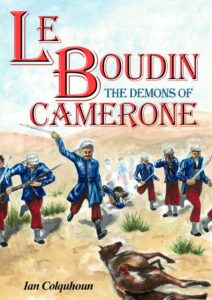

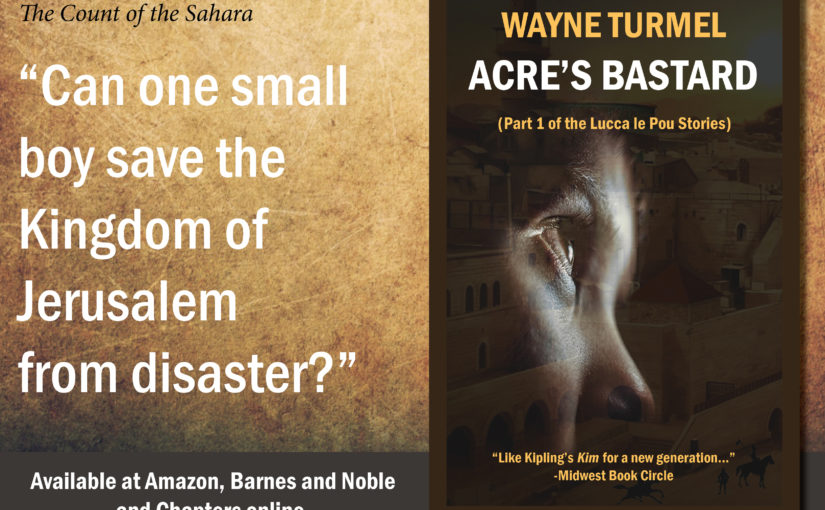
 Not only is the book set in the Ming and Qing dynasties, but Alice lives and writes in Richmond, BC, about 40 miles from my home town. She’s an avid reader of world historical fiction. Born and educated in Hong Kong, she grew up devouring Jin Yong’s (Louis Cha’s) martial arts and chivalry novels which are all set in China’s distant past. That sparked her life-long interest in Chinese history. Writing historical novels set in Old China has been her long cherished dream. She is the author of the bestselling Chinese edition of Land and the Ruling Class in Hong Kong, which won the 2011 Hong Kong Book Prize. In 2007, Canadian Book Review Annual selected the original English Edition as Editor’s Choice (Scholarly). Okay, she’s way out of my league but she talked to me anyway….
Not only is the book set in the Ming and Qing dynasties, but Alice lives and writes in Richmond, BC, about 40 miles from my home town. She’s an avid reader of world historical fiction. Born and educated in Hong Kong, she grew up devouring Jin Yong’s (Louis Cha’s) martial arts and chivalry novels which are all set in China’s distant past. That sparked her life-long interest in Chinese history. Writing historical novels set in Old China has been her long cherished dream. She is the author of the bestselling Chinese edition of Land and the Ruling Class in Hong Kong, which won the 2011 Hong Kong Book Prize. In 2007, Canadian Book Review Annual selected the original English Edition as Editor’s Choice (Scholarly). Okay, she’s way out of my league but she talked to me anyway….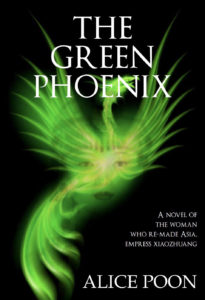 book?
book?